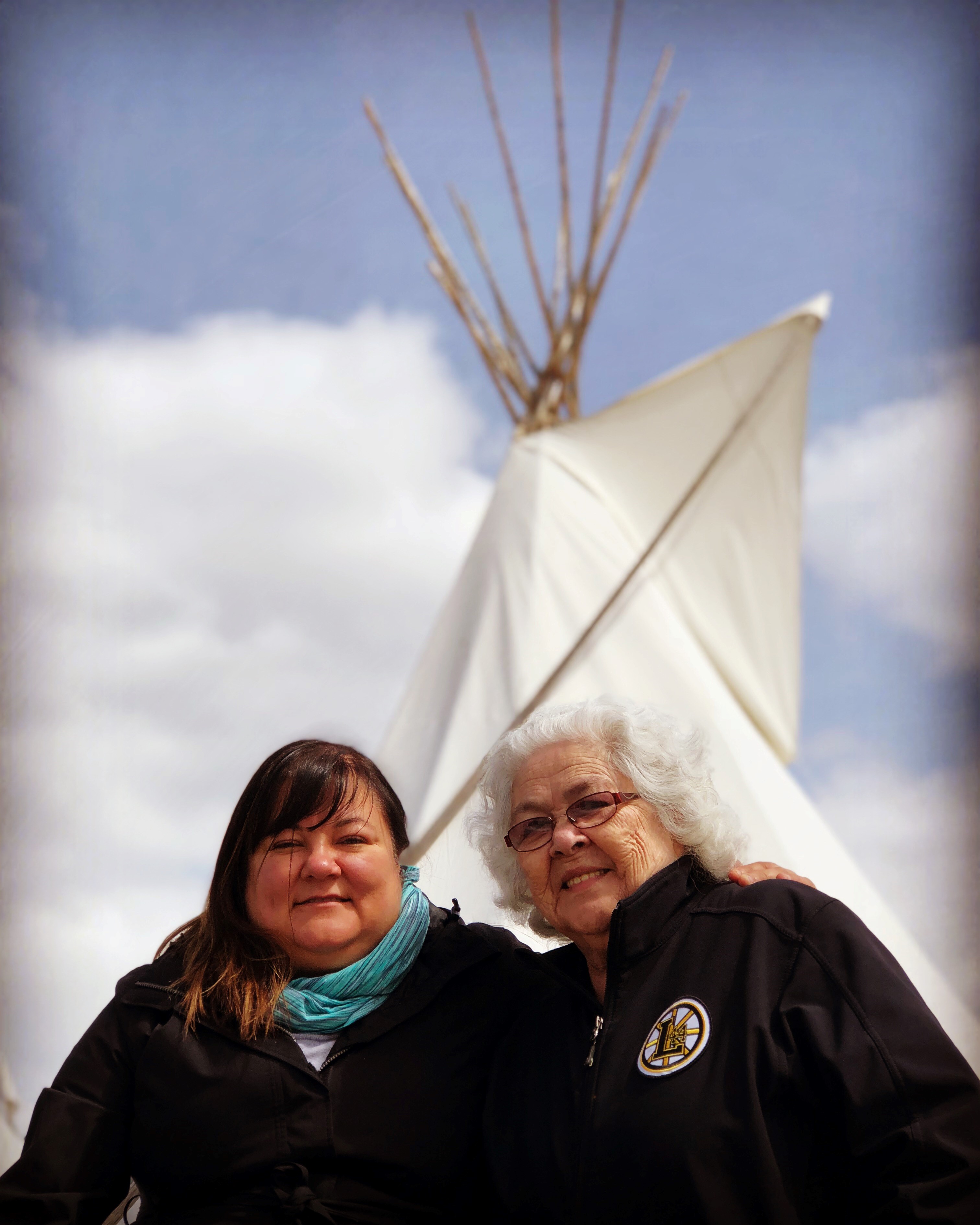
Duanna Johnston-Virgo with Elder Charlotte Manuel (Tk’emlups te Secwepemc)
Duanna Johnston-Virgo is the FNHA Mental Health and Wellness Advisor for Interior Region
Q: How would you describe mental health and wellness for First Nations people?
A: The vision of Mental Health and Wellness comes from within First Nations individuals, families and community members. It sees mental health and wellness as an important part of a balanced life. Too often mental health is ignored or stigmatized when it needs to be acknowledged and accepted as much as physical health. That's why I strongly encourage everyone to #GetLoud about mental health.
Q: What does it mean to feel well?
A: To me, feeling well is striving for a sense of peace and serenity within – a sense of balance that connects your mental, emotional, physical and spiritual aspects. This for me also involves a connection to the land and environment. When I am on the land, sitting by water or walking in a forest I feel more in tune with my inner self, which helps me to feel balanced.
Q: What do individuals and communities need in order to feel well?
A: Connection to people such as family, community members and elders is important to begin the process of feeling well. Whether you talk, share stories, or prepare traditional foods, the action of being connected can create a positive step to feeling good. Getting back to the land and water, providing access to traditional medicines, and knowing of our ways can enhance our mood and well-being. Communities need to focus on their strengths and our way of knowing as Indigenous people.
Q: How is mental health and wellness connected to physical, emotional and spiritual health?
A: Mental health for First Nations people takes place on a holistic level, where everything is intertwined. This holistic approach includes a connection to the physical, mental and spiritual aspects of our being. These all need to be balanced for an individual to be healthy.
Q: What are some of the root causes of poor mental health and wellness for First Nations?
A: Some of the root causes of mental health and wellness challenges for First Nations people are systemic – stemming from the impact of residential schools and colonization. As we know, this is generational and Indigenous people today are experiencing compounded traumas from a lack of access to drinkable water, high numbers of children being removed and placed into Ministry care, floods, wild fires, and systemic barriers from negative government policies and structures. As Indigenous people, we have just begun to talk about all the issues we face and how it has affected our mental wellness. We need to keep using our voices!
Q: What are some ways that individuals can take care of their mental wellness and nurture spirit?
A: Do what nourishes your heart and soul. Ways people can take care of their individual mental wellness and nurture their spirit include:
✔ Physical: exercise, yoga, run, lift weights, play sports, outdoor activities such as chopping wood, snowshoeing, etc.
✔ Spiritual: sweats, drumming, traditional dancing, telling stories, back to the land activities, picking medicines, connecting with elders, etc.
✔ Mental: talking with a friend, connecting with family, getting involved with community.
✔ Emotional: sharing tears, laughing, releasing emotions in a safe and healthy way
Q: Do you have any advice for someone who might be struggling with their mental health?
A: Reach out to family, friends, community members, and nation members if you are struggling.
Start out simply with reconnecting to a person, to the land, to an elder, to a loved one. Share your story and honour it to find your truth. Don't be afraid to seek professional and traditional help to support you on your healing journey.

